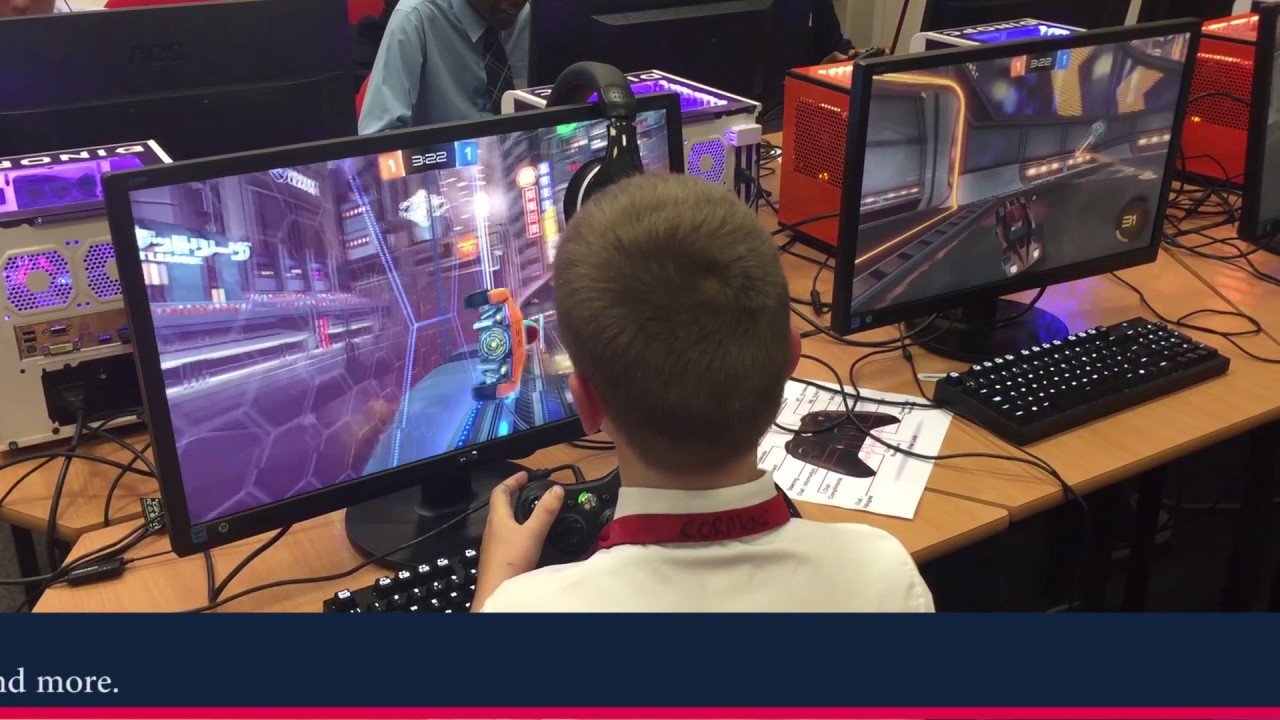The British Esports Association, the not-for-profit national body set up to support grassroots competitive gaming, has found that esports can be a beneficial activity for children when played in moderation.
The Association partnered with Westminster City Council and DinoPC for a free two-hour after-school esports training club, running every Tuesday for a month at Maida Vale Library.
The idea was to bring in 10 different children each week from local schools, aged 8 to 14, and give them a taster session on esports, including the careers available and the skills it can develop. The training club featured games of Rocket League, coaching, casting (aka match commentary) and journalism segments, followed by a Q&A.
British Esports has published a video and extensive PDF report reviewing the event, stating some of the key findings.
The pilot scheme was a sellout, with more children and parents signing up to attend than space would allow, showing there is real demand for more regular clubs in schools and libraries in the future. It also secured national and specialist press coverage.
Children and organisers identified several benefits and skills that the esports pilot promoted, including strategic thinking, teamwork, communication, leadership, performance skills and confidence. These skills are transferable and can benefit children in other areas, such as schoolwork, physical sports and general wellbeing.
Nic Carnelutti, marketing manager for DinoPC – which provided the systems for the esports sessions – said: “We believe the educational aspects of what the British Esports Association aims to achieve are highly beneficial to children and younger audiences.
“This scheme encourages young people to learn teamwork and participate in a challenge – building up their social skills which can then be used in other aspects of life.”
British casters Harry “DocDa” Evans and Ryan “Flakes” Oliver were on hand to teach the children commentating techniques.
One of the children, 13-year-old Mohammed Badamasi from Paddington Academy, added: “I think it was extremely fun and I really enjoyed casting and working with my team to win. Commentating is fun, Rocket League is fun – we had to work as a team to score. I would absolutely love to do this again 1000%.”
All of the children that took part in the pilot scheme said they would like to take part in a more regular esports club, either at their own school, nearby library or at a similar event in their area. For more feedback from the participants, please read British Esports’ full library PDF report.
Nick Fuller, Tri-borough Libraries Children’s Services Manager, Schools Library Service, Maida Vale Library, commented: “The new initiative between The British Esports Association and Westminster Libraries offers children a new and exciting experience, which is not only popular and fun, but also develops important skills for such as their strategic skills, emphasizing the need for teamwork and making computer gaming more social.
“The initiative will help to raise the profile of libraries to young people and a wider audience that libraries are a community space, offering new, exciting and fun activities that many would not associate with libraries. It also gives the children involved the opportunity to mix with other children from different schools and backgrounds.
“The Library Service is hoping that the partnership with British Esports will grow and that the esports offer can continue and be rolled out to more libraries, envisioning thriving leagues and competitions in libraries and across the service.”
Each child received a British Esports certificate, T-shirt and cap after the event.
Going forwards, the Association aims to help other schools and libraries roll out their own esports clubs for children.
Dominic Sacco, Content Director at the British Esports Association, said: “The idea is to better educate Britain regarding the benefits of esports, and to show parents, teachers and children there are viable career paths within the industry.
“There is a real demand for regular clubs at libraries and schools. And by targeting the younger demographic, we are looking at the bigger long-term picture with the goal of creating more British esports talent in the future.
“Also, with the likes of Ukie hosting the Digital Schoolhouse children’s esports tournaments, and several universities starting to offer esports modules, it’s a very exciting time for esports in Britain. We look forward to future developments.”
